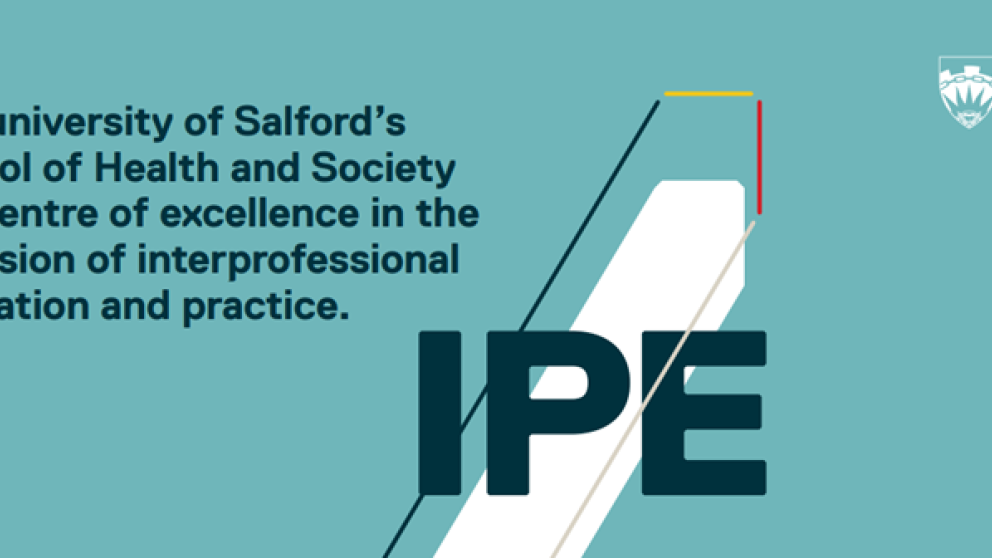The importance of interprofessional education (IPE) in Health & Social Care

Dr Melanie Stephens, Senior Lecturer in Adult Nursing and Head of Interprofessional Education comments on the evaluation of interprofessional education (IPE) activities for the academic year 20/21 within the School of Health and Society.
Melanie said: “Interprofessional education refers to occasions when students from two or more professions in health and social care learn together during all or part of their professional training with the object of cultivating collaborative practice for providing person-centred care.
“The goal of interprofessional education is to prepare health and social care professional students with the knowledge, skills, and attitudes necessary for collaborative interprofessional practice and the development of expert integrated teams. We know from the professional bodies, societies and councils; policy and guidelines from the World Health Organisation, NHS England, Skills for Care, and Kings Fund, that people are more likely to receive safe, high quality, person centred care, reablement, and rehabilitation when health and social care professionals work together”.
By engaging in the IPE activity, it ensures:
1. Students are ready for interprofessional working when they complete their programme and register with their professional body.
2. Help with assignments and future working practices, as in their mixed professional groups they can ask each other questions on the assessment, diagnosis, and management of people for whom they will care for. This will add a wider perspective to their academic work and provide access to new perspectives within the field of Health and Social Care.
3. Students have an opportunity to meet students from other programmes, as they might if they live in student accommodation. This can widen their social group during their studies and provide them with an opportunity virtually, to engage in student life whilst at Salford.
4. An opportunity for students to make friends with students outside of their programme for their health and wellbeing during the Covid-19 Pandemic.
Melanie explains: “In trimester 1 students in their interprofessional groups worked together to develop posters on transition to university and looking after your mental health.
“In trimester 2 students worked together to develop posters on the importance of building professional therapeutic relationships with each other and patients (in the workplace and online) and safeguarding”.
Clare Reavey, a first year Integrated Practice in Learning Disability Nursing and Social work (IPLD) student recommends taking part in IPE activities.
She said: “I would recommend other students take part in IPE, not only for benefits in a future career which will most likely involve communication with many other professionals, but to take advantage of the wealth of knowledge available from fellow students and other courses”.
Clare’s thoughts are echoed by Peace Ojerinola, a Biomedical Science student at the University.
Peace said: “It has given me an insight into working in a multidisciplinary team within the healthcare sector and it also encouraged me to do more research in this area. I found that IPE is greatly used in a wide range of career sectors and it plays an important role in team communication, interactions, and executions of various tasks. So far it has given me the courage to be more involved in group settings as well as strengthened my interpersonal skills, and I would strongly recommend for others to get involved in the activities as well”.
For all press office enquiries please email communications@salford.ac.uk.
Share:
